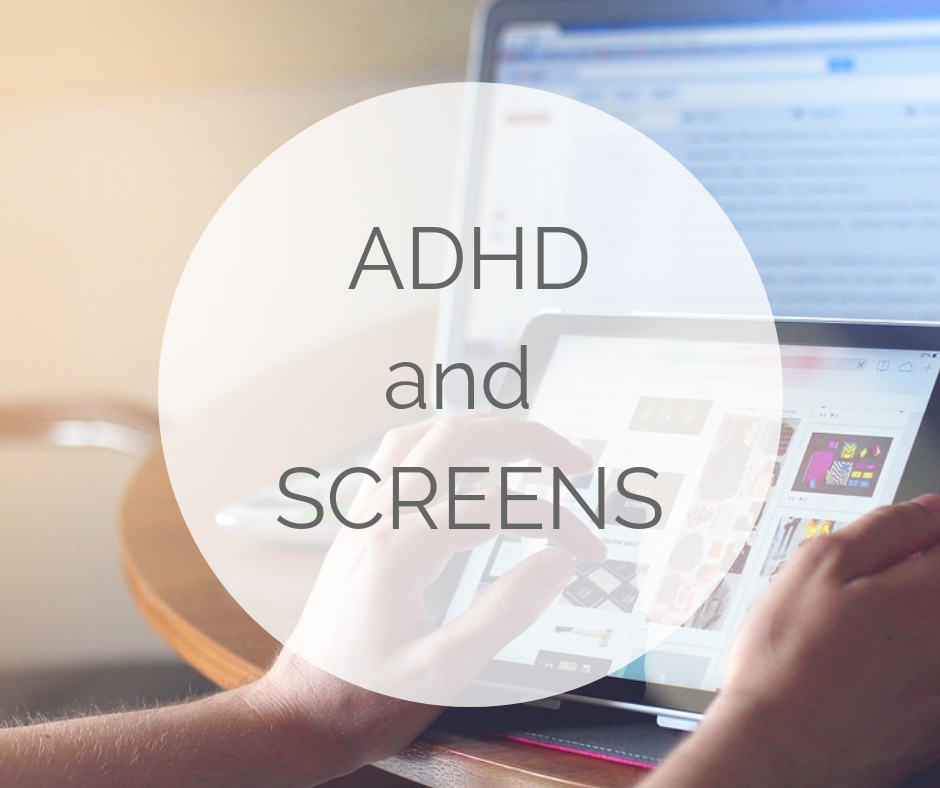Here is the good news: Watching too much TV or using any screen more than you really should does not cause ADHD. This fact in no way means the screens aren’t a problem. But parents can now stop feeling guilty about letting their children watch TV.
Here’s how screens feed into ADHD symptoms:
- Distractibility – Screens give simulating feedback which that the ADHD brain is seeks out. Staying focused on doing online homework which is common these days sets students up for a huge temptation.
- Hyperfocus – The ADHD brain can pay attention just fine when it is getting the stimulation it craves. Exciting stuff happens when playing online games that don’t happen while writing a paper or doing online math homework.
- Time Management – It may feel to the ADHD brain that a new tab was opened only a few minutes ago to “take a small break” from doing homework. Even if it has been an hour or more. The saying “time flies when are having fun” has never been so true as when you are talking about an ADHD brain. The intention for a small break was real but so is the common ADHD characteristic of having a disconnect with time. The ability to judge time is often just not there.
- Impulsivity – The ADHD brain just can’t help itself from doing stuff sometimes. Mix that with being more likely to engage in risky behavior and you have children and teens watch videos that aren’t appropriate, giving out information to people they shouldn’t be, sexting, or doing other inappropriate things on social media.
- Social Skills – The ADHD brain has a hard time picking up on social cues. If more time is spent on screen than less time is being spent face to face where social interactions could be practiced or learned.
- Sleep – The ADHD brain often has trouble getting to sleep, staying asleep and waking up add screen time is not going to help. Screen time close to bed makes it difficult for the ADHD brain to wind down for sleeping.
Here is how to help:
- Be a good role model – stick to your own limits for screens and create time when screens are ban for everyone like the dinner table or family game night.
- Use screens during a scheduled time.
- Praise children and teens for ending screen times.
- Don’t have strict times but look for natural stopping points like at the end of this level.
- Turn off screens for everyone an hour before bed.
- Phones and TV don’t belong in children/teen bedrooms. (or adults for that matter)
- Use media blocker to stay off tempting websites especially during homework time.
- Set up activities for transition time that are fun and physical if possible.
- Children don’t need cell phones; wait as long as you can before getting your teen a phone.

